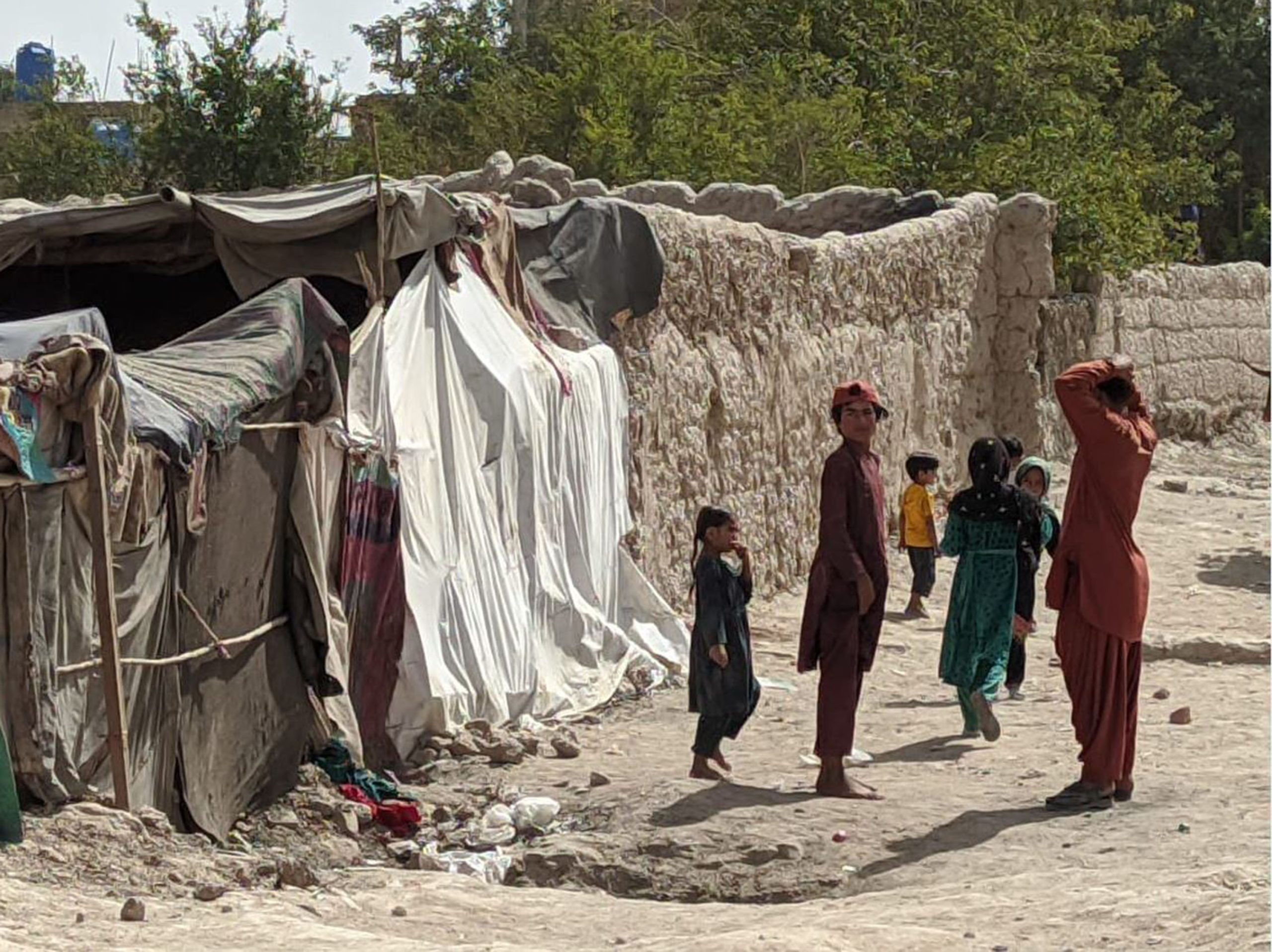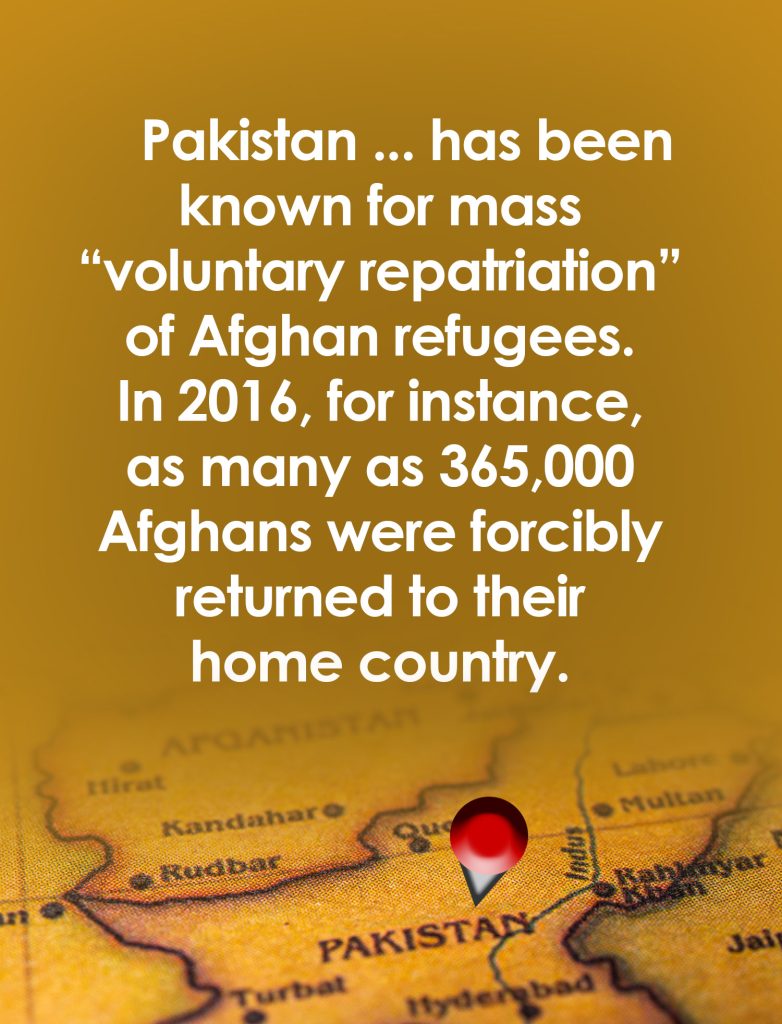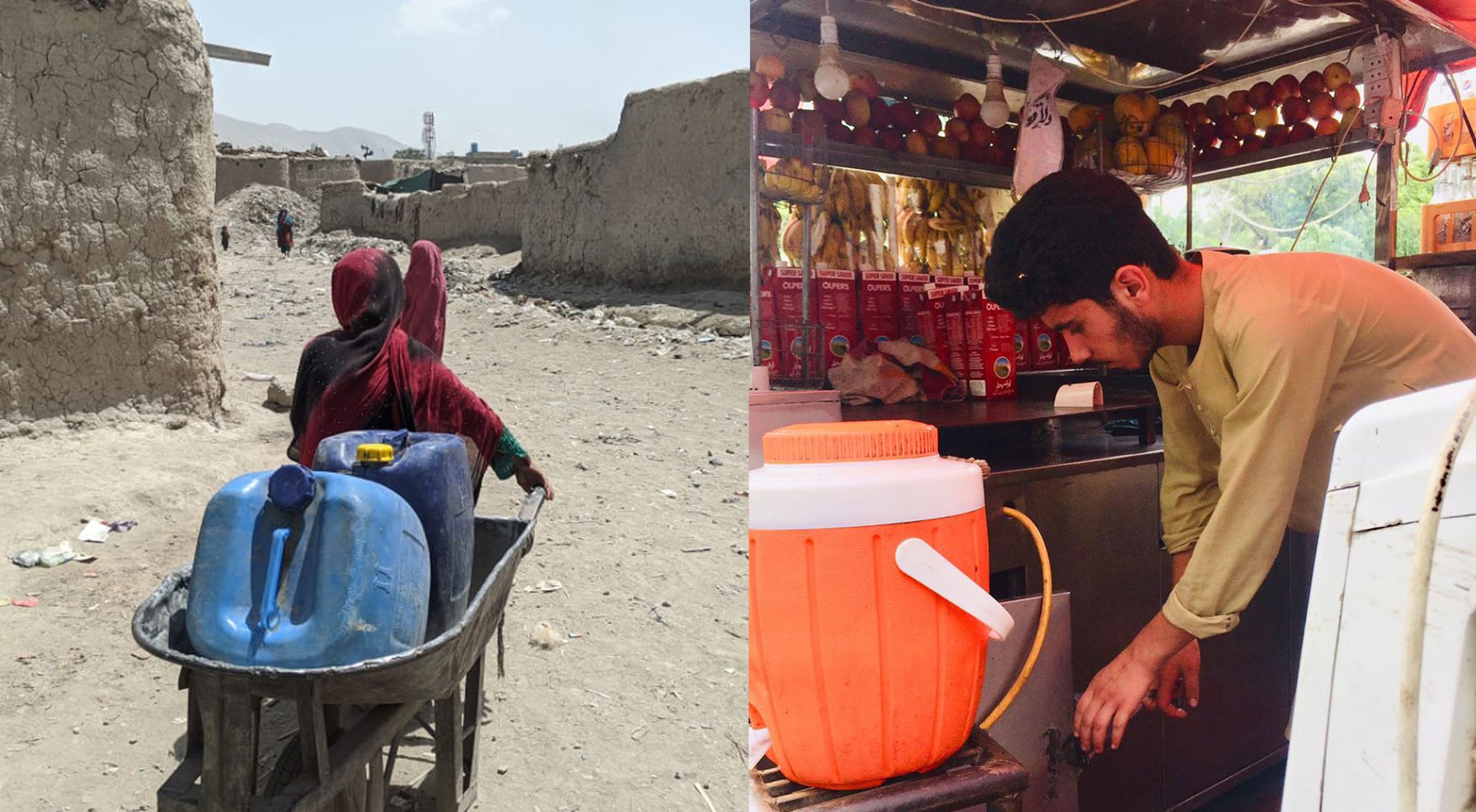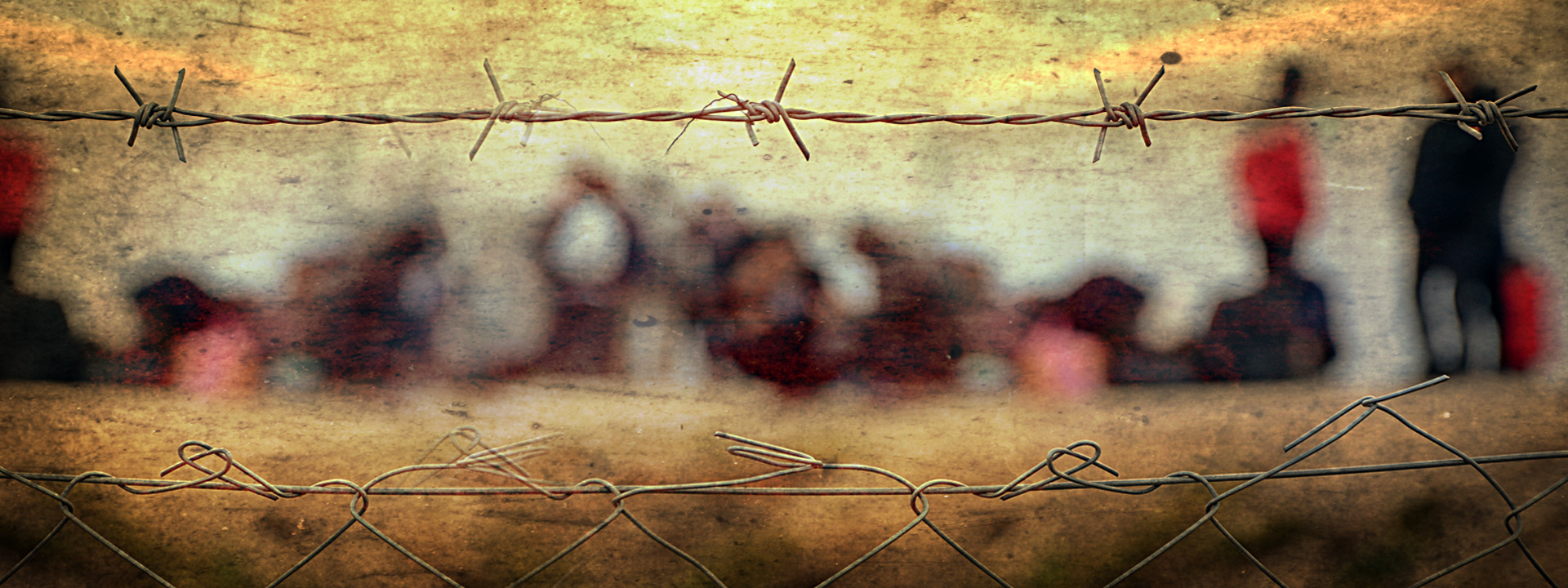The United Nations has warned that Afghanistan may produce some half a million more refugees by the end of this year, but desperate Afghans heading toward Pakistan will find that their country’s next-door neighbor had long rolled up the welcome mat.
Indeed, it has come to a point that even working with refugees in Pakistan has become almost a cloak-and-dagger affair. Says social worker Hassan Turi: “The biggest problem working with refugees is that you cannot work with refugees in Pakistan. We mostly don’t speak about them openly. Activists can’t work openly for refugees. They have to work on their own capacity.”
Pakistan, which shares a 2,670-km land border with Afghanistan, already has some three million Afghan refugees. Of this number, about 1.4 million have been issued Proof of Registration cards, which allow them freedom of movement, but not much else. Meena Ghabeena, a social worker and human rights activist, says, “Afghan children living in Pakistan can’t get admissions in public schools in Pakistan. Afghan youngsters are granted admission to Pakistan universities as foreigners, but they cannot even buy a SIM card in Pakistan.”
Sameer, who arrived in Pakistan just last year, says that he had been hoping to find work. “I don’t have any education so I started working at a juice dhabba (small shop),” he says. His job doesn’t pay much, but Sameer says that’s not the problem. This is: “In Pakistan, people treat us as third-class citizens, and the word ‘refugee’ is used as a curse.”

Since the 1970s, Pakistan has been receiving Afghan refugees fleeing war, drought, poverty, and, now, the return of Taliban rule. (Photo by Hammal Baloch)
Pakistan is not a signatory to the 1951 Refugee Convention. Since the late 1970s, however, it has found itself hosting scores of Afghan refugees. At one point, there were even more than four million Afghans in Pakistan, many of them fleeing the fighting between Soviet forces that had occupied their country and insurgents supported by the West and Pakistan. The Taliban’s brief but harsh rule of Afghanistan in the late 1990s and early 2000s also had Afghans running across the border. And while there was a West-backed Afghan government from 2001 until August this year, Afghans continued to leave their country — albeit at a lesser number — because of drought, poverty, and continuous fighting between Western and Afghan forces and the Taliban.
In return for accommodating the Afghan refugees, Pakistan received aid from UN agencies and the United States. But this apparently failed to change the Pakistanis’ views regarding their not-quite-welcome guests.
Prejudices pile up
In an August 2021 opinion piece for the New Humanitarian, Boston University professor Muhammad Hamid Zaman writes how it was in Islamabad during the 1980s: “The conversation back then, as it is now, was largely xenophobic. In my hometown, all of the crimes in the city — from theft to abduction to gun violence — were associated with the arrival of Afghan refugees (with little or no evidence). I remember family members warning me to stay away from any Afghan, lest I be abducted. I was told that Afghans came to Pakistan to create chaos, to make our lives miserable, and to get US visas by jumping the queue.”
“I was never told,” he adds, “that Pakistan was getting substantial aid and support from the United States and its allies during the Afghan-Soviet war. Nor was I told that the aid money supported the Pakistani economy and institutions that were benefiting us.”
These days, the Afghan refugee is seen not only as a burden to Pakistan’s economy but as a security threat. Police harass the refugees not only at border crossings but also on the streets.
One local who gives her name as only “Mona,” justifies such treatment by saying, “A wholesale cross-border displacement and refugee movement poses a potent and long-lasting threat to Pakistan’s already crumbling security and fast depleting resources. The fear of Talibanization and Taliban ideologues indoctrinating/propagating radical Islamic doctrines is another nightmare haunting progressive Pakistanis, who continue to fight extremism on a regular basis.”

“While Afghan refugees must be accommodated on humanitarian grounds,” says Mona, “Pakistan must focus on putting its house in order first.”
Many Afghans fleeing their country, however, do not have the luxury of time, and cannot wait for that to happen before they are allowed into Pakistan. Naseer Khan Achakzai, a Quetta university student, says, “I have never seen people in such a bad situation. When I went to meet refugees in Quetta, I was out of words as we met this female who was pregnant and currently staying in Imam Bargah (a mosque). She said she can’t even go to the doctor for medical check-ups because she fears they will be deported.”
Pakistan, after all, has been known for practicing mass “voluntary repatriation” of Afghan refugees. In 2016, for instance, as many as 365,000 Afghans were forcibly returned to their home country.
For sure, though, leaving one’s homeland in the first place is never easy. Hayat Hazara, a 44-year-old Afghan who was able to enter Pakistan through the Wesh-Chaman border crossing on 25 August, with his wife and daughters in tow, recounts, “My wife was crying all the way when we arrived at Quetta. She had mixed feelings. She was relaxed but at the same time she was sad about losing her job, for leaving her home, her belongings, and her beloved country. My daughters are missing their school, classmates, and dolls they had at home.”
But what they have experienced in Pakistan since has been nothing but a nightmare. Says Hazara: “We lived with almost one dress for two weeks because when we arrived at Boldak, a Kandahar border town, the people who were transporting told us to leave our luggage and later they would ship them. Can you see? There is no way. A person has no income, is not allowed to work, or has no way back to their home country. No assistance to go to a third country. So, should people die?”
“I emailed UNHCR Pakistan for assistance,” he says. “They referred me to SAHER, one of its partners in Balochistan. Then, I called them. They told me the only thing they can do is to register me as a refugee. For this registration, you should wait for our call. I am still waiting for that. We didn’t receive any health, sanitization, education, finance, or settlement support from the government, NGOs, or UN.”
Money politics
According to the UN High Commissioner for Refugees (UNHCR), it has already been approached for help by some 10,800 new Afghan refugees in Pakistan who may be in need of protection. And while Pakistan has repeatedly said that it will not accept any new Afghan refugees, the UNHCR has asked for flexibility in cases where there is a direct threat to life.
Social worker Turi says that “nobody is issuing (refugees) cards right now. In winter they will face more problems. The most problematic thing is to find houses for them. For this process, again they have to register themselves and get housing certificate, which is difficult for them.”
The UNHCR and its partners have made an appeal for US$300 million in fresh funds for refugees from Afghanistan who may seek shelter in Pakistan and other nearby countries in the coming months. Whether that will sway Pakistan’s leaders to soften their stance on Afghan refugees, however, remains to be seen.
Human rights activist Zegum Abbas, though, is not keeping his hopes up, even if Pakistani officials suddenly have a change of heart. He says, “Past experience tells us that humanitarian aid for refugees ended in the pockets of the Pakistani establishment, which built business empires out of it.”

Many Afghans who cross the border to Pakistan are left to fend for themselves while facing prejudice from some locals. Sameer, right, who sells drinks from a small juice shop, says people treat them as third-class citizens. (Photos by Hammal Baloch and Saba Chaudhary)
According to Abbas, refugees are the “cannon fodder of Pakistan’s Afghan policy.” He says, “Most of these refugees end up in the thousands of madrasas (religious schools) across the country, and after necessary training, they are used as foot soldiers of Pakistan’s strategic depth policy in Afghanistan.”
“This is not a conjecture,” he insists. “If you look at the current Taliban government in Afghanistan, you will find that most of the leadership once came to the country as refugees and ended up in madaris (Islamic theological schools) and after necessary ideological engineering they were sent back as the guardians of strategic depth policy. And as we see that the humanitarian aid doesn’t reach the refugees on the ground, most of them are then forced to madrasas, which turn them into foot soldiers of Pakistan’s Afghan policy.”
Says Abbas: “Contrary to the official posturing right now, the Pakistani establishment will be more than happy to host Afghan refugees. They present a golden chance for the ruling elite to fill their coffers through humanitarian aid.”
In the meantime, university student Achakzai has decided to collect funds for Afghan refugees, with the help of other students. He says that he is doing so in his “personal capacity” and that he and his friends are not linked with any organization. “We are doing this on humanitarian grounds,” he says.
“There are different refugees and different sad stories,” adds the young man. “Every story unfolds the reality of hard policies in both countries, where lives of civilians do not matter.” ●
Saba Chaudhary is an independent journalist and activist based in Pakistan. Her work focuses on human rights, gender, and socio-political issues.



















